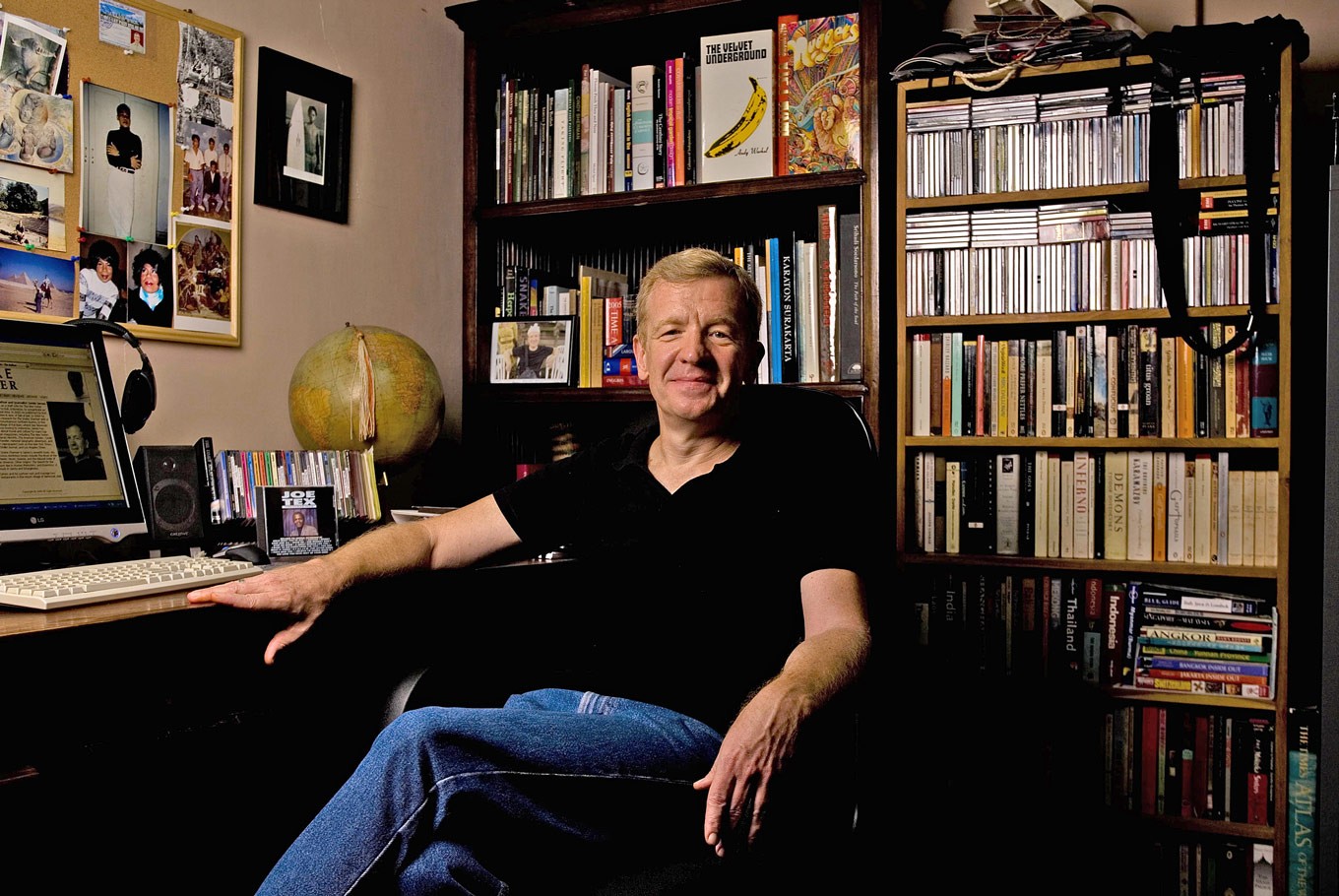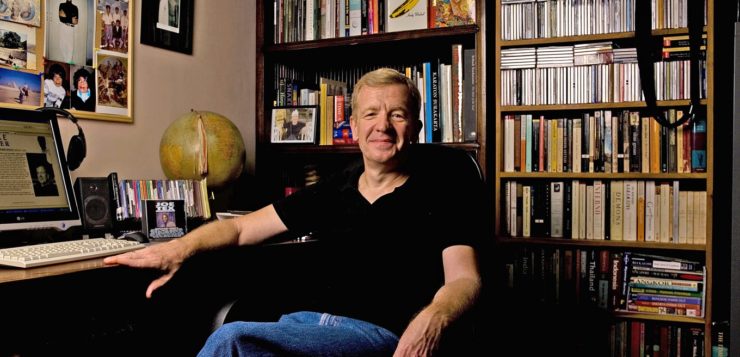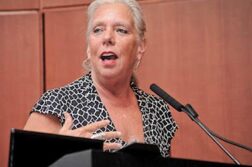WRITER Jamie James died in Indonesia on February 9, 2020, at the age of 68. His most recent nonfiction books were Pagan Light: Dreams of Freedom and Beauty in Capri (2019), The Glamour of Strangeness: Artists and the Last Age of the Exotic (2016), and Rimbaud in Java: The Lost Voyage (2011). He also wrote two novels, Andrew & Joey: A Tale of Bali and The Java Man. The 2014 recipient of a Guggenheim Fellowship, James contributed criticism, travel reportage, and essays to many publications including Harper’s, Lapham’s Quarterly, The Atlantic, Men’s Journal, National Geographic, Condé Nast Traveler, The Wall Street Journal, Rolling Stone, and The New York Times, among other publications.
Born in 1951 and raised in Houston, Texas, James graduated from Williams College in 1973, where he majored in art history and was elected class valedictorian. After college, he headed for New York City, where he lived for the next 25 years, working as a freelance writer, including a stint as art critic for The New Yorker.

In 1999, he moved to Indonesia, living first in Jakarta and then Bali before finally settling on the island of Lombok. James wrote on many subjects, but often returned to the theme of cross-cultural encounters. During his Texas boyhood, Jamie was enraptured by narratives of foreign lands, starting with the works of Robert Louis Stevenson and progressing rapidly to Joseph Conrad, above all Lord Jim. In “Jim and I,” a 2003 essay for The American Scholar, he explained the formative influence of these tales, whose motifs later resonated in his own work and life.
James’ long involvement with Indonesia began in 1995, when The New Yorker sent him there to profile the distinguished writer Pramoedya Ananta Toer. Smitten by the vast archipelago with its multiplicity of peoples and cultures, he made Indonesia his home and joined its cultural life, helping to organize the annual Ubud Writers Festival. Although the demands of his work and, later, his move to out-of-the-way Lombok limited his appearances on the expatriate social circuit, he was happily integrated into the local community.
James’ acceptance was greatly facilitated by his devoted relationship with Rendy Bugis, a gregarious entrepreneur from the island of Sulawesi, whom he met during his first visit to Jakarta in 1995. During their residence in Bali, they operated two successful restaurants, among other ventures. Wherever they lived in Indonesia, Jamie and Rendy’s status as a same-sex couple seemed to create little or no friction, even after they moved to Lombok, a conservative Muslim society. There they were cozily ensconced in a household with a revolving cast of extended family members. At first their neighbors knew James simply as Bugis’ American partner, but he became prominent in his own right through his leadership in community activities such as the reconstruction of the local mosque after the 2018 earthquake.
James wrote widely about art, literature, and travel. Some of his later books were fascinating hybrids of travel, history, and cultural criticism. Given the range of his interests, it would be an oversimplification to peg him as a “gay writer,” but gay characters and material crop up frequently in his writings. Of particular note is his novel Andrew & Joey (2002), which was blurbed by Andrew Holleran, a mainstay of this magazine. It’s an epistolary novel (in the form of emails) about a gay couple’s relationship that does not survive relocation to Bali. The relationship unravels under the pressures of professional and artistic setbacks, along with the many and sundry snares that can await expatriates living in Asia. The book developed something of a cult following in Indonesia. Whenever James made public appearances, he was invariably approached by young gay Indonesian men who had read it. He also wrote Rimbaud in Java: The Lost Voyage (2011), a speculation about the French poet’s “lost year” in Java in 1876, when he joined the Dutch Colonial Army, sailed for Java, deserted, and disappeared into the jungle.
James’ final illness was sudden but brief, and he was buried in a Muslim funeral in Lombok, attended by family, friends, and neighbors. Like a character out of Maugham or Conrad, James had found inspiration, contentment, and love in an unlikely but congenial setting far from the land of his upbringing. He is survived by his partner Rendy Bugis, his father Henry Grady James, and his sister Teresa James Wilson and her family.
Henry Rector is a U.S. diplomat with extensive experience in Southeast Asia.





